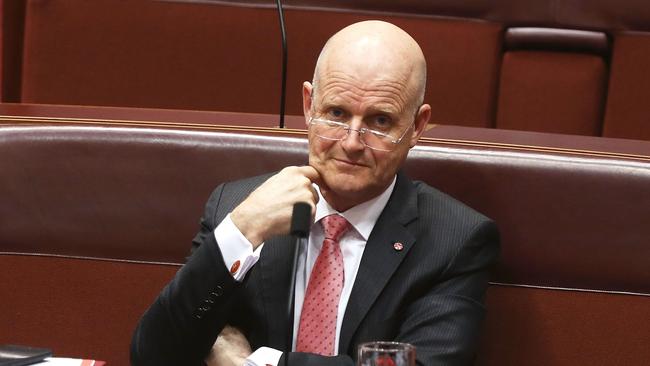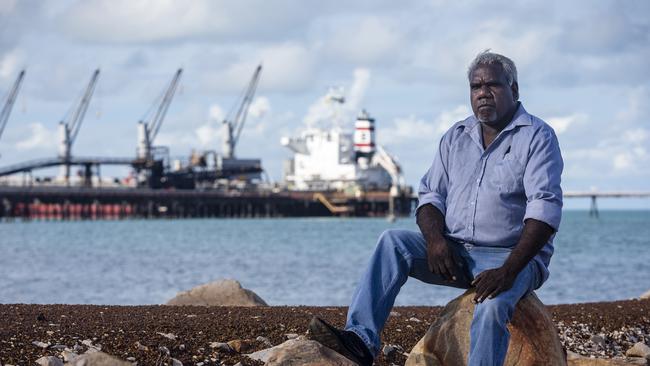The big problem with legalising euthanasia
SUICIDE rates for indigenous Australians are a national crisis. The last thing the communities affected need is euthanasia laws which send a disastrously mixed message, writes Kai Nash.
Rendezview
Don't miss out on the headlines from Rendezview. Followed categories will be added to My News.
UNDETERRED by the failure of 2015’s bill, euphemistically titled “Restoring Territory Rights”, David Leyonhjelm is again trying his luck at repealing the Euthanasia Laws Act (1997), which prohibits the jurisdictions of the Australian Capital Territory and the Northern Territory from legalising euthanasia.
Considering that the NT’s indigenous population is 25.5 per cent — the highest of any state or territory — it is worth considering how the implementation of euthanasia would affect the local indigenous communities, the struggles of which have already been extensively highlighted.
In 2013, the Australian Bureau of Statistics released data showing that Aboriginal and Torres Strait Islander Australians are 2.6 times more likely to die by suicide compared with non-Indigenous Australians. Suicide rates among young indigenous Australians (aged 15 to 24) are five times higher than they are among other Australians within the same age bracket, and 80 per cent of Australian children under 12 who take their own lives are Aboriginal and Torres Strait Islander.
Sadly, the suicide rates of Aboriginal and Torres Strait Islander people in the Northern Territory are the highest in Australia.

Significant government spending has been poured into addressing this marked disparity. In 2013, the Department of Health flagged the prevention of suicide among Aboriginal and Torres Strait Islander people as a “public health priority for all Australian governments”.
In 2017, the federal government granted a $10 million funding boost to the NT and SA in a bid to provide further suicide prevention services in indigenous communities nationwide. Surely, the legalisation of physician assisted suicide would act to increase the already shocking rates of suicides in these regions.
To examine whether this may be the case, we can look at research into what effects, if any, the legalisation of physician assisted suicide has on non-assisted suicide rates.
A 2015 study examined the effects of the 1997 physician assisted suicide legalisation in Oregon and found that physician assisted suicide was “associated with an increased rate of total suicides relative to other states and no decrease in non-assisted suicides”. In relation to the Northern Territory, this is a very real concern. The remoteness and endemic poverty in these tight-knit communities is the perfect storm for increased risk of suicide contagion, which can result in tragic “suicide clusters”, which regularly rock the communities.
David Leyonhjelm displays a bewildering lack of foresight in presenting this bill. The government cannot in good faith implement suicide prevention measures while simultaneously advocating for the “right to die”. It is counter-productive and incomprehensibly shortsighted.

Public perception often reflects the belief that physician assisted suicide is a last-ditch measure, a regrettable necessity to be considered only when unendurable physical pain can no longer be managed and all other strategies have been exhausted. However, a study published in the Journal of the American Medical Association last year found that the majority of patients in Oregon who opted for euthanasia in an 18 year period stated the reason as loss of autonomy and dignity. This suggests there are quite possibly bigger issues in play, contributing to vulnerability and the desire to die.
In the NT, we know for a fact that there are bigger issues in play: deep-seated, seemingly intractable problems that need comprehensive and long-term solutions. The implementation of euthanasia into this already complicated situation would be the height of stupidity.
David Leyonhjelm does the indigenous communities of the Northern Territory a great disservice by presenting this bill, which flies in the face of suicide prevention efforts and threatens to jeopardise everything the local communities and government have been working to achieve.
Kai Nash is an Aboriginal and Torres Strait Islander student at Macquarie University in Sydney.
If you need help call Lifeline on 131114 or visit www.lifeline.org.au.
Originally published as The big problem with legalising euthanasia
